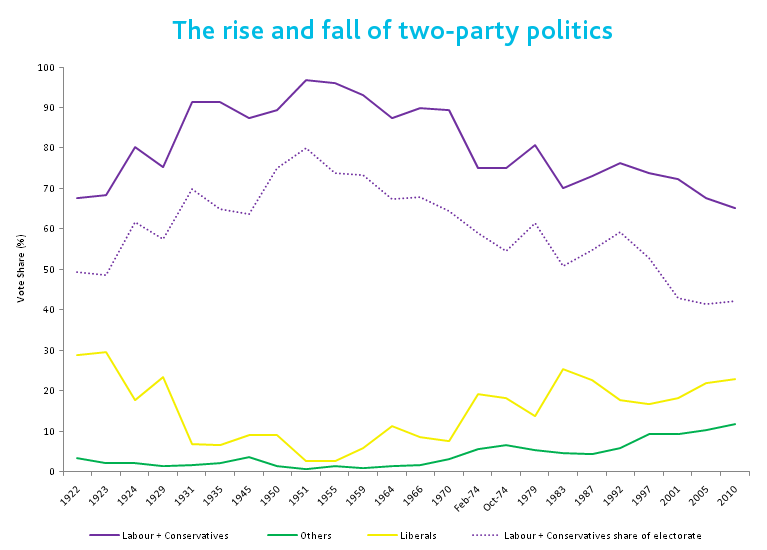Is coalition government here to stay?
Regardless of how long the Conservative-Liberal Democrat coalition lasts, long-term trends suggest coalitions are likely to be more common.
Regardless of how long the Conservative-Liberal Democrat coalition lasts, long-term trends suggest that hung parliaments and coalitions are likely to become more common in future. In other words, the 2010 election result was almost certainly no fluke. So some thought is needed about how the political system needs to adapt to make a success of multi-party government. In a series of blogs, of which this is the first post, I will be addressing this subject.
